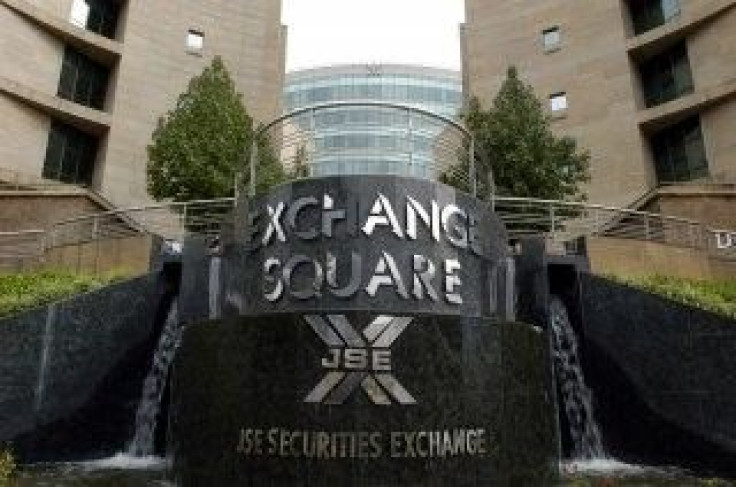S.Africa bonds fall on Budget, rand buoyed by c.bank comment

South African government bonds fell to three-month lows on Wednesday but the rand firmed over 1.0 percent after the finance ministry projected a higher- than-expected budget deficit for the 2011/2012 financial year.
Resource-heavy South African stocks sagged for a second day in a row on Wednesday as the unrest in Libya continued to hurt emerging markets globally, partly because of concern about the impact of high oil prices on economic growth.
South African Finance Minister Pravin Gordhan forecast a budget deficit of 5.3 percent of gross domestic product for next fiscal year, far above market expectations that he would project 4.5-4.6 percent.
The yield on the 2026 bond ZAR186= jumped to a three-month high of 8.915 percent on the day, compared with a close of 8.76 on Tuesday. That on the shorter-dated 2015 paper ZAR157= rose to a high of 7.84 percent, from a previous close of 7.765.
The market is unhappy with the budget figures, specifically the deficit figures, said Alvin Chawasena, a bond dealer at Renaissance BJM.
The market was expecting the government to come through to look for more funding, and one would also expect that funding to come from the longer end so what we've seen is the curve steepening drastically.
Although the government said it planned no additional bond issues as a result of its deficit forecast and would instead borrow internationally, traders said there was still concern that supply could rise at the long end of the curve.
However, yields came off their highs by the end of the day -- the 2026 bond closed at 8.865 percent -- and there was no panic.
One reason was that Gordhan refrained from announcing any fresh measures to curb strength of the rand, beyond saying his ministry would continue to back dollar-buying by the central bank. This suggested investors' money would continue to flow into South Africa seeking currency appreciation; some of this money will go into bonds.
RAND
The rand ZAR=D3 firmed to a three-week high of 7.0586 against the dollar after the Budget speech. Its rise was aided by Reserve Bank governor Gill Marcus, who reiterated she did not target a specific level in the currency. The currency had closed at 7.1675 previously.
Markets reacted sharply to Governor Marcus's statement. Dollar/rand dropped some five figures in response, interpreting this statement as meaning the SARB will take a more hands-off approach in the future, said Gabor Ambrus, emerging markets analyst at 4Cast.
STOCKS FALL
The JSE Top-40 index of blue chips .JTOPI was down 1.66 percent to 28,743, while the broader All-share index .JALSH dropped 1.58 percent to 31,932.
It was pretty broad-based selling with the Libyan concerns still weighing on our market, said Devin Shutte, a trader at NewsTrading.
Media conglomerate Naspers (NPNJn.J) was the worst performer among blue chips, losing 3.95 percent to 381 rand, and platinum producer Lonmin (LONJ.J) dropped 3.84 percent to 202.18 rand.
Bourse and mining heavyweight BHP Billiton (BILJ.J) lost 2.55 percent to 271.50 rand and rival miner Anglo American (AGLJ.J) was down 2.14 percent to 363.07 rand.
Shares of Africa's biggest grocer Shoprite (SHPJ.J) shed 2.84 percent to 94 rand, following outperformance in the last few days after the company posted strong first-half profit on Tuesday.
Building firm Murray & Roberts (MURJ.J) was down 2.14 percent to 27.41 rand after the group swung to a half-year loss. [ID:nLDE71M1OL]
Growthpoint Properties (GRTJ.J) linked units gained 0.71 percent to 16.97 rand after South Africa's largest listed property firm reported an 8 percent rise in half-year payout to investors.
© Copyright Thomson Reuters 2024. All rights reserved.











